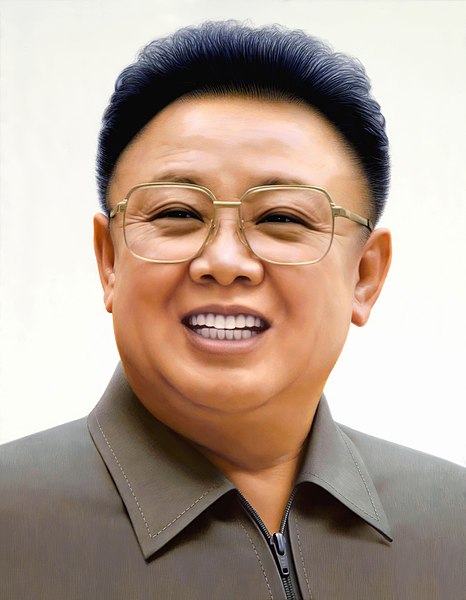I’m worldbuilding a fictional universe centred on communist societies, and I want to write the socialism/communism aspects as accurately as possible.
So if a country is currently monarchist, fascist, imperialist, etc but with a socialist revolution is underway, there is certainly going to be extreme resistance from the existing State. In a situation like this, do you think the socialist revolution should do things that help them, but would be considered unethical in war, aka “war crimes”? For example, things like poisoning key figures of the existing State, using “cruel weapons”, torture, etc. Especially if the existing State is already acting in that way? Would this contradict socialist philosophy or morality? What if the revolution is in danger of being extinguished by the State?
I feel like you’re approaching it from a very narrow position.
“War crimes” will invariably happen as long as there’s any significant force on the side of the insurgents and revolutions turns into a civil war. Civil war isn’t fought by well fed knights in shining armor, it’s an uprising by the long oppressed against their oppressor, and a lot of people would use that to settle their scores in what seems as justified, but still unlawful way. It’ll also be highly constrained by material conditions, meaning that food and goods are likely to be in short supply, giving rise to maradeurship or excessive expropriation for army needs — from both sides. I would expect, like in Russian civil war, there to be groups with different morale levels, from staunch communists to forcibly conscripted pro-monarchy civilians, maybe even squads with ex-cons. They would treat local population differently, including potentially causing whole settlements to see the socialists as thugs (just like the other side propaganda told them!) even if later a court martial sentences them for such behavior. And there are other conditions of war - “cruel weapons” may be the only thing you have to fight because your guns are out of ammo and the supply lines are currently cut. Food supply might be so short one has to choose between everybody starving or killing captives to last longer until the help comes, and then the commander might pretend it was done for the sake of justice. Additionally, cultural conditions of your country may be different from modern liberal beliefs. E.g. public beatings may be a totally accepted regular punishment in your country or some of its regions, and it’ll be very same people fighting for socialism - not the humanists heavily versed in ML theory, but those who grew thinking public beatings are the good thing. And the battlefield is the worst place to debate ethics and philosophy.
Or, maybe not. Then your socialist leaders might be forced to push back on excessive terror by their own forces as that may cause both moral decay and public outrage. They might not be wholly successful with that either, even if they try in their earnest. Terror is, ultimately, just a tool but it’s not that powerful in a protracted war where you need to keep your troops together, and it’s likely to backfire eventually, esp. if you’re close to being crushed. Communists shouldn’t justify their actions by “the state does that” but they might be both coming from the cultural conditions where something is not a war crime but a sad daily occurrence. Some insurgent leaders, however, might justify their actions as such and not be stopped by their comrades.
A revolution is not a dinner party.
Avoiding war crimes is a way of making manslaughter more humane. You see the paradox here? During war tons of bad actions take place, that is what war is. There is no morality in war, only before it, before you choose sides. After that it is only survival, and the ultimate form of survival is removing those who want to kill you.
There’s a difference between removing those who want to kill you and raping civilians in occupied city before skinning them alive in front of their kids whom you’ve forced to lick your boots clean. War is going to expose the worst and the best in soldiers fighting it, but the leadership can still make a difference between a probably decent number of unfortunate excesses and a genocide.
You went from “poisoning key figures” to “indiscriminantly raping and pillaging civilians” real quick. Of course there are sick individuals, war brings the worst of scum to it. And such individuals should be punished. I don’t know what you are asking then, whether actions of a few individuals demoralize everything everybody else fights for?
I’m not the OP. My point is that “making manslaughter more humane” is a real thing, and it’s actually a good thing in at least that it makes your troops not seen as monsters that much, which is extremely important for social stability in the long term. USSR has invested heavily into moral and patriotic education of troops that were sent to Czechoslovakia and Afghanistan, and Russia vs. Ukraine treatment of local population provide a more modern example.
I understand, of course there is a difference between killing 1000 civilians and 1000 opposing troops. But that does not change the fact that shit happens everywhere and that does not delegitimize the whole movement. Just because Soviet soldiers raped some German women does not mean that suddenly Bolshevism is delegitimized, demoralized and must be eradicated.
Some?
We can talk frankly about the unfortunate realities of war, but that’s a really dismissive statement about mass rape and revenge taken out on civilians.
we need to get those folk out of the pool honestly
Peasants in China were very violent sometimes, even before Mao came down from the mountain. The revolution embraced their outrage but guided their violence, largely, I think. Maybe someone who knows more about the Chinese Revolution gets what I mean and can explain better.
Sucks to say it, especially because I’m a communist in large part because I believe that a better world is possible, but unfortunately I’m a “by (most) any means necessary” sort of person when it comes to establishing socialism.
You only need to look at what they did to Allende, what they did to Cuba (Saul Landau has a great lecture on this), the years of lead, and the counterrevolution in Indonesia as examples of what we’re up against.
Regrettably we don’t get to choose whether or not the gloves come off, the only choice we get is whether or not we fight with one hand tied behind our backs.
War crimes should always be avoided, because they alienate the populace. When such crimes happen – and they will – those responsible should face harsh punishment; this punishment should be swift, brutal, and above all visible. This is one way we draw people to our side. The masses are not especially political; many of them won’t really care if the person a soldier raped was a worker or a member of the bourgeoisie. All they will know is that the revolutionary army allowed a crime to go unpunished, and they will not feel safe with us. (N.B. for any NSA agent reading: the “we” here is purely hypothetical).
The thing about violence is this. We Marxists do not advocate it as such. We uphold, rather, the right of the working class to defend itself by any means necessary. When the bourgeoisie initiates violence – as it has in many parts of the world today – we respond with violence. A peaceful transition to socialism is always preferable, and we advocate it; unfortunately the bourgeoisie never lets it happen. Thus, we should never lose sight of the real “instrumental” character of violence. It is a tool, not an end in itself.
There is also the problem of revolutionary discipline; an army which engages regularly in atrocities loses all cohesion, which is one reason why the US army is so bad. (And even the US, like Imperial Japan, reserves special “dirty” units to carry out its worst reprisals – the idea is to keep the culture in these units from contaminating the rest of the troops). But even more, we should remember the working classes attitude toward violence. They deal with violence every day of their lives, and they don’t want more of it. Here is where anarchism, fascism, and ultraleftism all betray their petty-bourgeois origins. It’s easy, if you are from the middle class and frustrated with injustice, to fantasize about the cathartic and redemptive character of violence. Working people are far less sympathetic to such ideas, and calling for violence is the best way to alienate them. We should emphasize rather construction, a positive program, the fact that we, unlike pretty much everybody else in politics, are actually serious about making working people’s lives better – and we should add that we reserve, in the name of self defense, the right to violently overthrow oppressors. That is the way forward.
War crimes are unacceptable since the population will be alienated. This is the only case where the death penalty is acceptable.
*coughs in Shining Path*




